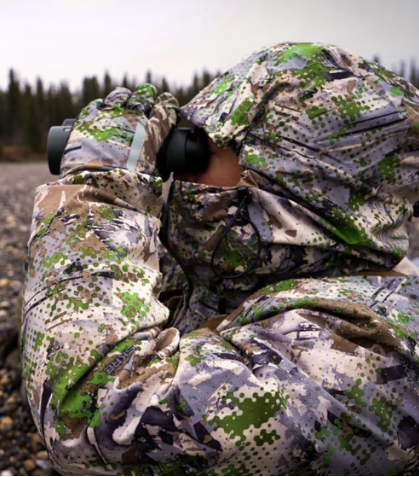Équipement de chasse imperméable vs résistant à l'eau: ce dont vous avez vraiment besoin sur le terrain
Apr 04, 2025
Rien n'égale le frisson de la chasse, jusqu'à ce qu'une averse soudaine transperce votre veste et vous glace le sang. L'humidité peut être plus qu'inconfortable sur le terrain : elle peut être dangereuse. C'est pourquoi choisir le bon équipement est essentiel, surtout pour se protéger des éléments. Mais tous les vêtements de pluie ne se valent pas. Vous avez probablement déjà vu des vêtements de chasse étiquetés « imperméables » ou « résistants à l'eau », mais quelle est la différence et quand utiliser chacun ? Ce guide vous explique tout ce que vous devez savoir pour choisir le bon équipement pour votre prochaine chasse.
Découvrez nos vêtements de chasse imperméables
SKRE Gear® propose des vêtements de chasse imperméables haut de gamme, parfaits pour la chasse par temps humide et froid. Achetez dès maintenant.
Achetez des vêtements de pluie
Pourquoi la gestion de l'humidité est importante sur le terrain
L'humidité peut non seulement nuire à votre confort, mais aussi à votre sécurité et à vos performances. Les vêtements mouillés éloignent la chaleur corporelle, favorisent la diffusion des odeurs et nuisent à la concentration. Dans des conditions extrêmes, elle augmente même le risque d'hypothermie.
Au-delà de l'inconfort physique, les vêtements trempés alourdissent le poids, réduisent la mobilité et peuvent vous amener à interrompre votre chasse. Que vous soyez en pleine nature ou assis dans un mirador pendant des heures, rester au sec est essentiel pour rester efficace.
Que signifie « résistant à l’eau » ?
Les équipements de chasse imperméables bénéficient d'un revêtement déperlant durable (DWR) qui évacue l'humidité légère (brume, pluie fine ou broussailles humides). Ces vêtements

sont conçus pour repousser l'eau pendant de courtes périodes, mais ils ne sont pas complètement étanches aux éléments.
Caractéristiques typiques :
- Tissus extérieurs traités
- Léger et respirant
- Matériaux à séchage rapide
- Pas de coutures scellées ni de membranes imperméables
Meilleurs cas d'utilisation :
- Chasses en début de saison
- Scénarios de repérage et de traque actifs
- Climats secs où les fortes pluies sont rares
Des vêtements résistants à l'eau comme le Veste SKRE Hardscrabble ou Pantalon Uinta de début de saison est parfait pour les chasseurs qui privilégient la mobilité et la respirabilité lors des chasses par temps doux.
Que signifie « imperméable » ?
Les vêtements imperméables vont encore plus loin. Ils utilisent des membranes laminées (comme eVent ou une technologie similaire), des coutures entièrement scellées et une construction résistante aux intempéries pour empêcher l'eau de pénétrer dans le tissu, même en cas de fortes pluies ou de neige.
Caractéristiques typiques :
- Construction entièrement scellée
- Membranes imperméables intégrées au tissu
- Rabats anti-tempête et fermetures éclair étanches
- Souvent plus lourds que les options résistantes à l'eau
Meilleurs cas d'utilisation :
- Environnements humides comme les marécages, les forêts tropicales ou les régions alpines
- Chasses de fin de saison avec neige, grésil ou pluie verglaçante
- Chasses de plusieurs jours où rester au sec est essentiel pour la sécurité
Veste de pluie Nebo de SKRE Gear et Coquille gardienne sont des exemples de vêtements d'extérieur véritablement imperméables conçus pour les pires conditions météorologiques auxquelles les chasseurs sont confrontés.
Principales différences entre les équipements imperméables et résistants à l'eau
| Fonctionnalité | Résistant à l'eau | Étanche |
| Protection contre la pluie | Pluie légère, bruine, broussailles humides | Fortes pluies, neige, résistance à la submersion |
| Respirabilité | Haut | Modéré (dépend de la membrane) |
| Durabilité | Bien | Excellent (souvent renforcé) |
| Poids | Léger | Plus lourd, plus robuste |
| Coût | Plus abordable | Prix plus élevé en raison de matériaux avancés |
Comprendre ces différences vous aide à adapter votre système en fonction de la chasse : toutes les situations ne nécessitent pas une protection entièrement étanche.
Quand utiliser chaque type d'équipement
Le choix entre des vêtements de chasse imperméables et résistants à l’eau dépend de votre environnement et de votre style de chasse.
Utilisez un équipement résistant à l'eau si :
- Vous chassez en début de saison ou dans des climats plus chauds
- Vous vous attendez à une pluie légère ou à de la brume, mais pas à des averses
- Vous serez en mouvement et aurez besoin d'une ventilation maximale
Utilisez un équipement imperméable si :
- Vous resterez assis pendant des heures par temps froid et humide
- Vous chassez dans des zones à fortes précipitations ou dans des régions enneigées

- Vous effectuez des chasses dans l'arrière-pays sur plusieurs jours et ne pouvez pas risquer d'être trempé
De nombreux chasseurs combinent les deux. Par exemple, vous pouvez porter un pantalon imperméable lors d'une chasse active, mais emporter une veste imperméable légère.l comme la veste de pluie Nebo pour les changements de temps soudains.
Comment choisir le bon équipement pour vos besoins
Voici quelques questions pour guider votre décision :
- À quel point l'endroit où vous chassez est-il humide ?
- Êtes-vous constamment en mouvement ou assis dans un affût ou un arbre ?
- Quelle est l’importance de la compressibilité par rapport à la protection complète ?
Choix d'équipement SKRE :
Étanche:
- Veste de pluie Nebo: Ultra-léger, entièrement imperméable, se replie de manière compacte.
- Coquille gardienne: Protection robuste et isolée conçue pour la chasse en fin de saison.
Résistant à l'eau :
- Veste Hardscrabble: Softshell durable avec finition DWR et extensible pour les chasses actives.
- Pantalon Uinta: Léger et respirant pour le début de saison.
Découvrez nos vêtements de chasse imperméables
SKRE Gear® propose des vêtements de chasse imperméables haut de gamme, parfaits pour la chasse par temps humide et froid. Achetez dès maintenant.
Achetez des vêtements de pluie
Conseils d'entretien des engrenages pour préserver les performances
Même le meilleur équipement imperméable et résistant à l’eau a besoin d’entretien pour fonctionner correctement.
Pour les équipements résistants à l'eau :
- Réappliquez le spray DWR lorsque l'eau cesse de perler
- Laver avec un détergent technique sans parfum
- Évitez les assouplissants (ils abîment le revêtement)
Pour les équipements imperméables :
- Laver délicatement, en utilisant un détergent imperméable
- Sécher au sèche-linge à basse température pour réactiver la membrane
- Utiliser des agents imperméabilisants à appliquer au lavage ou en aérosol selon les besoins.
Conseil: Rangez toujours l’équipement dans un endroit sec et aéré pour éviter la moisissure et les odeurs.
Conclusion
Lorsque vous êtes en pleine nature, votre équipement doit être aussi performant que vous. Comprendre la différence entre un équipement de chasse imperméable et résistant à l'eau vous permet de faire des choix judicieux, que vous affrontiez de fortes pluies ou que vous ayez simplement besoin d'une protection légère contre une averse passagère.
Optez pour l'imperméable pour une protection optimale dans les conditions difficiles. Optez pour l'imperméable pour la respirabilité et l'agilité par temps plus clément. Ou mieux encore, créez un système intégrant les deux pour être prêt à affronter toutes les aléas de la nature. Trouvez votre équipement imperméable et résistant à l'eau chez skregear.com aujourd'hui!



